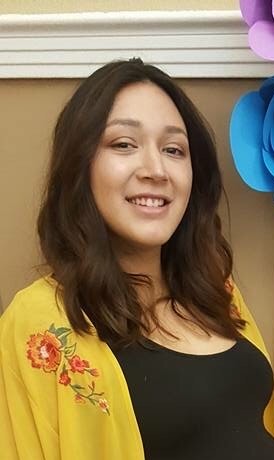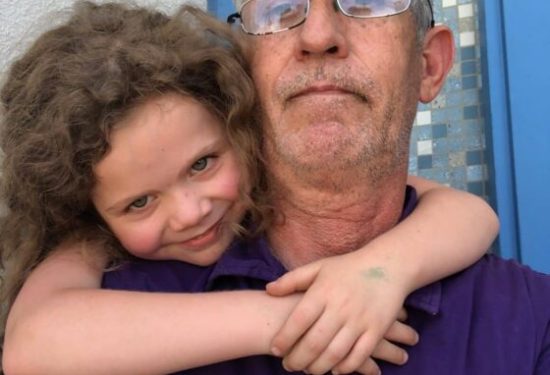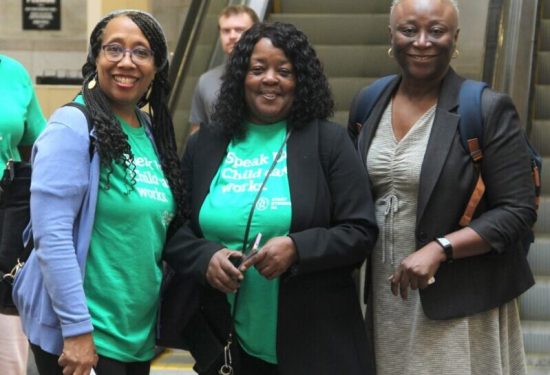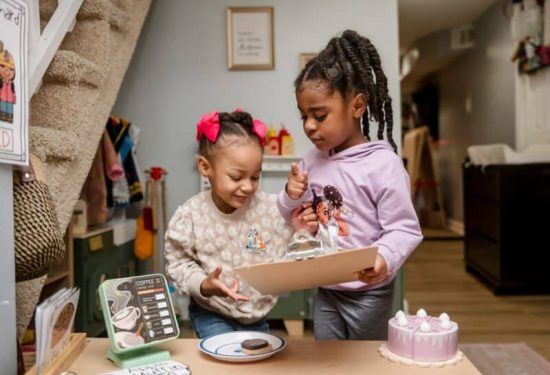I’ve been taking care of children for as long as I can remember. In my community, it’s just something the oldest child of the family does: I watched cousins, nephews, nieces. Then after I started having my own children, a friend would ask me to watch hers as well. It wasn’t a business for me and still isn’t. I don’t charge a standard rate up front. Sometimes parents pay me what they can afford or help out with food and diapers, but mostly we are just helping each other as we can. I have four children, two are preschool age, so I usually also care for one or two other neighbor children with me at home.
In 2020, I learned about a group of caregivers in San Jose who were meeting on Zoom to support each other with child care challenges during the pandemic. That group has continued, and now there are about 80 of us, and we meet in person as well as on Zoom. The group includes parents, grandparents, family, friend and neighbor (FFN) caregivers, licensed child care providers, and some preschool teachers. After listening to all of these people, I was so impressed with how professional and essential child care workers are and how our work allows the whole community to thrive.
In the last four years, I have gotten more and more involved in the child care network, and I discovered Home Grown. I started taking child development classes and I’m working on my associate degree so I can be a teaching assistant. I take pride in sharing that information and expertise with parents, too – sort of like a parenting coach. Sometimes a mom needs to know that she doesn’t have a bad child, she just needs to help her child work through some problem.
Two years ago, I joined Leading from Home, which has really changed my sense of myself as a leader. Leading from Home is a Home Grown initiative that supports home-based providers/caregivers as they work to have a voice in policy and decision-making. The initiative provides support and resources to a group of home-based providers, made up of both licensed family child care and family, friend and neighbor providers.
I started out nervously, but surrounded by all of these wonderful women and with my mentor, Chris Nelson, I am gaining confidence and courage. I came in as only a listener, but now I am speaking up and thinking about how I can run my own meetings and take this structure back to my network in San Jose. Being a part of Home Grown’s Leading from Home group has really opened my eyes. I’ve learned how much child care shapes our communities. For the community to thrive, we have to recognize the important work of caring for children, and I have to take pride in my own work as a caregiver for my own children and for friends’ and neighbors’ kids, too.
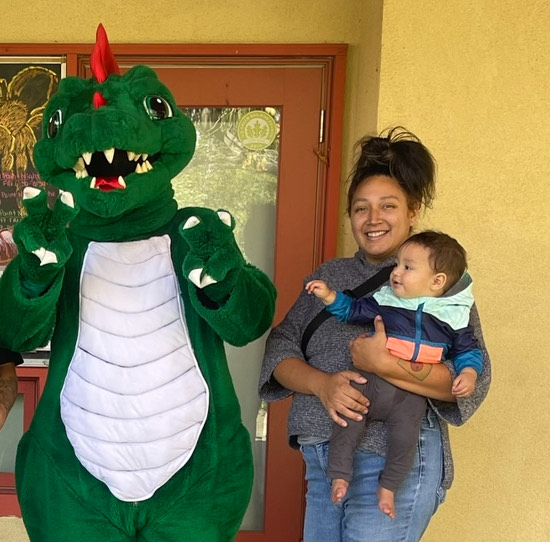
The women in my network think of me as helpful and funny: I bring a little humor to the group. By sharing Home Grown’s resources and all that I learn in Leading from Home, I can give other caregivers a feeling of hope and belonging. We’re all from different backgrounds, but we are in this together and share a common goal. We want to help raise happy, healthy, emotionally mature children. We are the beginning of that life journey, putting our kids on the path to become great adults.
Knowledge, confidence and pride are the seeds of leadership that I take away from Leading from Home. I want to plant those seeds in my own community and nurture them. I want to help more low-income parents find affordable child care, which means we have to educate the community and policymakers about how we need more funding and more scholarships so that parents don’t have to choose between paying the rent and paying for child care. If you are interested in Leading from Home, know that it’s the chance of a lifetime. You will meet people who share your goals and have a great mentor who is a fountain of advice and listens to you, helps you brainstorm, and figure out how to apply those ideas in your own network. You are not alone in this work. Taking care of children and helping others to do that too is our super power!
If you are interested in Leading from Home, know that it’s the chance of a lifetime. You will meet people who share your goals and have a great mentor who is a fountain of advice and listens to you and helps you brainstorm and figure out how to apply those ideas in your own network. You are not alone in this work. Taking care of children and helping others to do that too is our super power!
